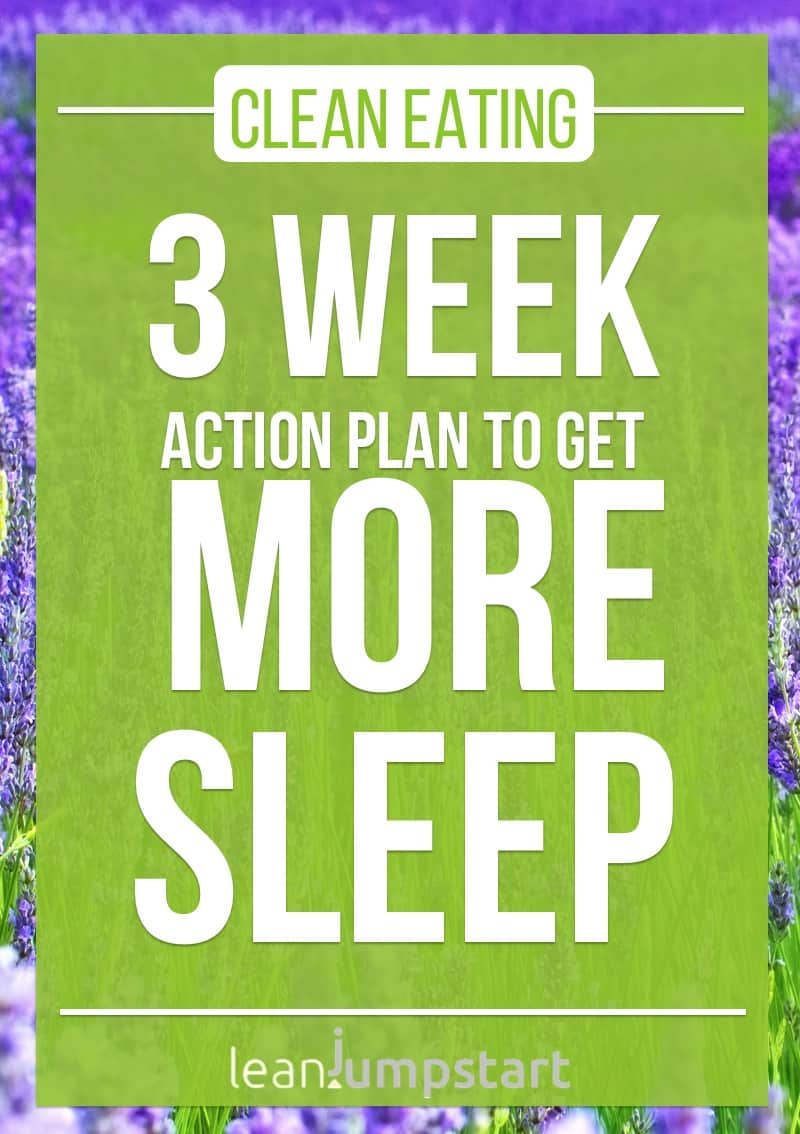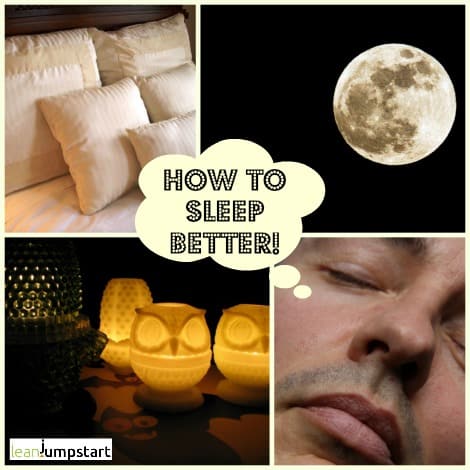Do you need more ways to get to sleep? I hope you could stop already the habit of eating close to bedtime. It was an important part of this week’s clean eating challenge. Take it to the next level with my 3-Week action plan. This action plan is especially beneficial for you if you tend to be an emotional overeater who is triggered by sleep deprivation (tired eater).
Week 1: Create a healthy environment
Roughly a third of our lives we spend in our bedrooms. So, it is not surprising that the state of our bedrooms affects the quality of sleep and stress levels. This week, try to turn your bedroom into a restorative retreat. Consider the following:
Temperature:
We rest better in a well-aired, slightly cooler room. Keep your temperatures set somewhere between 60-68 degrees F (16-20 degrees Celsius)
Humidity:
Humidity levels in your bedroom should range between 30 and 50%, with the ideal hovering at 45%.
Lighting:
Ensure that your bedroom is dark enough and avoid bright light before bedtime. Darkness signals melatonin production in the body to help you sleep and maintain your circadian rhythm. Wear a mask or get blackout curtains.
Comfortable bed wear:
Be sure your bed is comfortable. If your mattress is worn, invest in a new mattress that promotes a healthy rest. Dress in bed wear that is not too binding or loose
Media:
Get TV and other media out of your bedroom. Electronics with their glowing lights inhibit a good night’s rest.
Week 2: Follow the basics of good sleep
After you have optimized your sleeping environment, follow these basic tips for getting good sleep:
- Stick to a regular bedtime and rising time
- Use your bedroom only for sleep and sex.
- Avoid caffeine, especially after mid-afternoon like coffee, black tea, coke.
- Avoid drinking liquids too close to bedtime as it might result in nighttime waking to urinate
- Omit alcohol late at night since it impairs the quality of sleep.
- Do not discuss serious problems right before bedtime
- Do not watch scary movies or read exciting books before bedtime
 Week 3: How to get to sleep – a long-term approach
Week 3: How to get to sleep – a long-term approach
Are you still having a hard time to get restful sleep? The key here is to experiment. What works for you might not work as well for others. Try now and in future to find the strategies that work best for you. Here are some additional ideas:
- Taking a warm bath with sleep-enhancing aromas can help you relax prior to bedtime. Besides relaxation, the feeling of warmth extends the deep sleep phase as fluctuations of the body temperature (hot flashes) influence sleep quality.
- Regular exercise for as little as 30 minutes a few times a week can improve sleep.
- Enjoy a sauna once a week
- Drink herbal teas with effective herbs for sleep and relaxation before bedtime (valerian, lavender, lemon balm, chamomile, passion flower)
- Increase the melatonin concentration in your body by eating melatonin rich foods throughout the day (tomatoes, oats, barley, bananas, ginger).
- Go to bed only if you are tired. It makes no sense going to bed earlier, only because you have to be especially rested the next day. Most people stay awake in their bed and have problems falling asleep.
Tell me your proven ways to get to sleep
What are your strategies for a better sleep? Feel free to share your tips in the comments section below.



I love the insight here and will attempt to implement!
Another thought: I often stay up too late because it is the only “me” time I have. No one needs me, no judge or jury telling me what to do. When feeling overwhelmed by life and people, staying up for “me” is a coping mechanism – not a good one! The next day is often more stressful for lack of sleep.
I’m going to be more intentional with my sleep.
Thank you.
Dear Jayda,
I’m glad that my post could inspire you. I understand your position regarding “coping mechanism”. But a restful sleep will always be the healthier “coping mechanism” than staying up and save on sleep. Finding “me” time throughout the week is often a question of planning and sticking to it. It mustn’t be long, e.g. a 3-minute meditation in the morning or evening can already work miracles.
Great tips Gabi. I do follow them, except the “Stick to a regular bedtime and rising time”. This is the hardest part. I do go up at the same time (because I have to;) However, going to bed at the same time is very hard on me. Can it be that the time is running even faster at night? 😉
Thank you Fida! You know – we as “online junkies” – for us there is always too little time throughout the day – let alone the night…I’m the same. My target every night is 11 pm. When I achieve this target several days in a row I’m proud of me already…I think as long as your sleeping quality isn’t affected you are fine even with a bit flexibility regarding regular bedtime;) Otherwise fixing this should be a priority.
Thank you for this valuable advice and inspiration Virginia. Having a restful night at a mature age or once retired is a real gift! Let alone the fact that you don’t have to get up in the night. It is a wonderful habit to end your day with listening to god’s voice. I wish you all the best. God bless you!
I put a CD in my CD player put headphone on and listen to the Bible being read to me , I usually fall asleep in a few minutes and when the CD player stops I hear the click off then I remove the headphones and go right back to sleep. I have been doing this for years, I started this when I retired . The last thing I hear before I go to sleep is the word of God. I have a restful night I am 71 years young and I don’t have to get up in the night to go to the bathroom. I usually get up between 6 am and 7 am each day. I am Blessed .
Virginia, I too have found scripture to help me dose off at night! I am trying to read through the Bible in one year and I find that by the last few paragraphs I am struggling to keep my eyes open. That is a great idea to listen with head phones!